★★★
“My Sweet Sixteen Teenage Armageddon.”
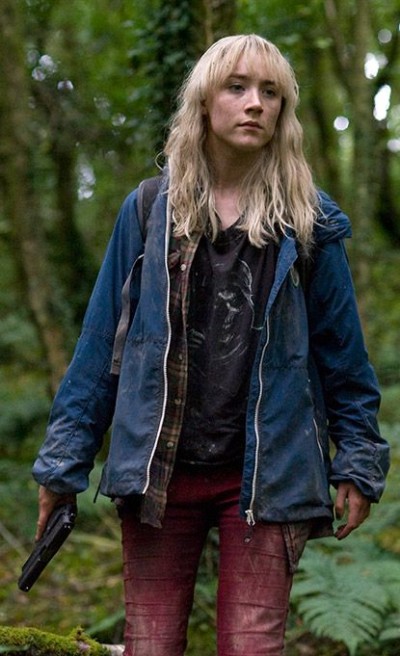 The extraordinarily surly teenager Elizabeth (Ronan), who loudly insists on being known by everyone as “Daisy,” is sent from American to spend the summer in rural Britain with relatives. Unsurprisingly, she hates it – at least, until she meets Eddie (MacKay), a local brooding hunk for whom she falls. Fate throws a spanner in the works, however, as escalating tensions eventually lead to a nuclear attack on London and the outbreak of World War 3, against an un-named foe. The kids try to fend for themselves, but the boys and girls are forcibly separated, with Daisy having to take care of young cousin Piper (Bird). Turning her willpower to topic other than, as she says, not eating chocolate, she and Piper escape the camp where they are being used as forced labour, and begin the hazardous trek back to where Daisy is sure Eddie is waiting.
The extraordinarily surly teenager Elizabeth (Ronan), who loudly insists on being known by everyone as “Daisy,” is sent from American to spend the summer in rural Britain with relatives. Unsurprisingly, she hates it – at least, until she meets Eddie (MacKay), a local brooding hunk for whom she falls. Fate throws a spanner in the works, however, as escalating tensions eventually lead to a nuclear attack on London and the outbreak of World War 3, against an un-named foe. The kids try to fend for themselves, but the boys and girls are forcibly separated, with Daisy having to take care of young cousin Piper (Bird). Turning her willpower to topic other than, as she says, not eating chocolate, she and Piper escape the camp where they are being used as forced labour, and begin the hazardous trek back to where Daisy is sure Eddie is waiting.
The best thing here by far is the heroine’s character arc. In the first two minutes, it’s established what a totally unlikeable bitch Daisy is: she has clearly made up her mind to hate the trip and everything about it, and the audience hates her for the obvious narcissism. But by the end, she has been forged in the fire of adversity and completely transformed in just about all aspects of personality, to someone who has learned that it’s much better to live your life for others than for yourself. As Chris noted, it’d be funny if the whole thing had just been a set-up by her (unseen) father, just to teach his whiny daughter a good lesson. That isn’t the case: what it is, is another powerhouse performance by Ronan, backed by solid work from the rest of the young cast, particularly Piper, who could gives the likes of Abigail Breslin and Dakota Fanning a run for their money in the Adorability Stakes.
Probably the main weakness is the abruptness of the relationship between Daisy and Eddie. It probably needed more time taken to develop it, because as things stand, it seems Daisy falls head over heels for him at about the second glance. On the other hand, I’m quite glad it didn’t because it’s the kind of standard, young adult cliché which we’ve seen far too often before [this was based on a book from the genre by Meg Rosoff]. Much more satisfying is the second half, when Daisy is forced entirely into relying on her own skills, and becomes a much more interesting character as a result. Director Macdonald got his start in documentary film-making and brings much of the same urgency to proceedings here, not soft-pedalling the brutality and violence of armed conflict. Like a more contemporary version of The Hunger Games, it shows how inner strength can be found in the most surprising of places, and Ronan cements her position as one of the leading young action heroines in Hollywood.
Dir: Kevin Macdonald
Star: Saoirse Ronan, George MacKay, Harley Bird, Tom Holland





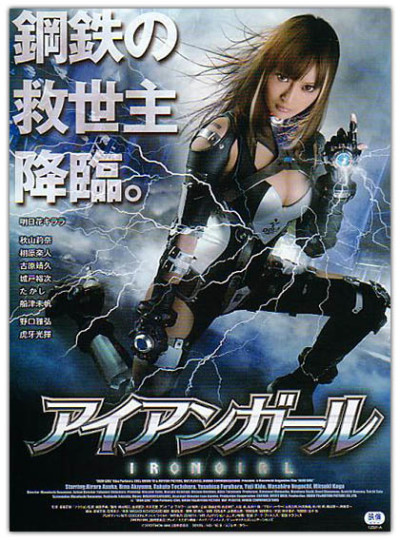 The introduction tries to make it seem as if this could take place at any point in history, but there’s not much effort put into maintaining the illusion. The guns and overall setting – best described as “distressed warehouse” – puts this firmly into the post-apocalypse genre, though it’s very much at the bargain basement end of the spectrum. The heroine (adult actress Asuka) stumbles across naively innocent Anne (Akiyama), being pawed by some bad guys after straying into the danger zone to pick flowers; clearly a kinder, gentler apocalypse. After punching them out, assisted by remarkable reactions and her metal exo-skeleton, Anne is escorted back to her
The introduction tries to make it seem as if this could take place at any point in history, but there’s not much effort put into maintaining the illusion. The guns and overall setting – best described as “distressed warehouse” – puts this firmly into the post-apocalypse genre, though it’s very much at the bargain basement end of the spectrum. The heroine (adult actress Asuka) stumbles across naively innocent Anne (Akiyama), being pawed by some bad guys after straying into the danger zone to pick flowers; clearly a kinder, gentler apocalypse. After punching them out, assisted by remarkable reactions and her metal exo-skeleton, Anne is escorted back to her 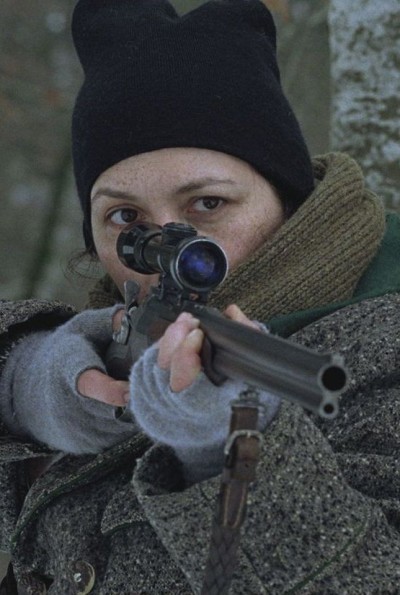 This is a very different kind of GWG film: indeed, it could almost be called an inaction heroine movie. It starts from a very simple presence. A woman (Gedeck) wakes up in a cabin in the Austrian Alps. When she tried to head to a nearby village, the path is blocked by an unseen, impenetrable barrier that has sprung up overnight, and now defines the boundary of her world. Everyone outside is dead. What do you do? How do you survive, both short- and long-term? Could you handle the loneliness? Can you retain your humanity, when you are, apparently, the only human being left?
This is a very different kind of GWG film: indeed, it could almost be called an inaction heroine movie. It starts from a very simple presence. A woman (Gedeck) wakes up in a cabin in the Austrian Alps. When she tried to head to a nearby village, the path is blocked by an unseen, impenetrable barrier that has sprung up overnight, and now defines the boundary of her world. Everyone outside is dead. What do you do? How do you survive, both short- and long-term? Could you handle the loneliness? Can you retain your humanity, when you are, apparently, the only human being left?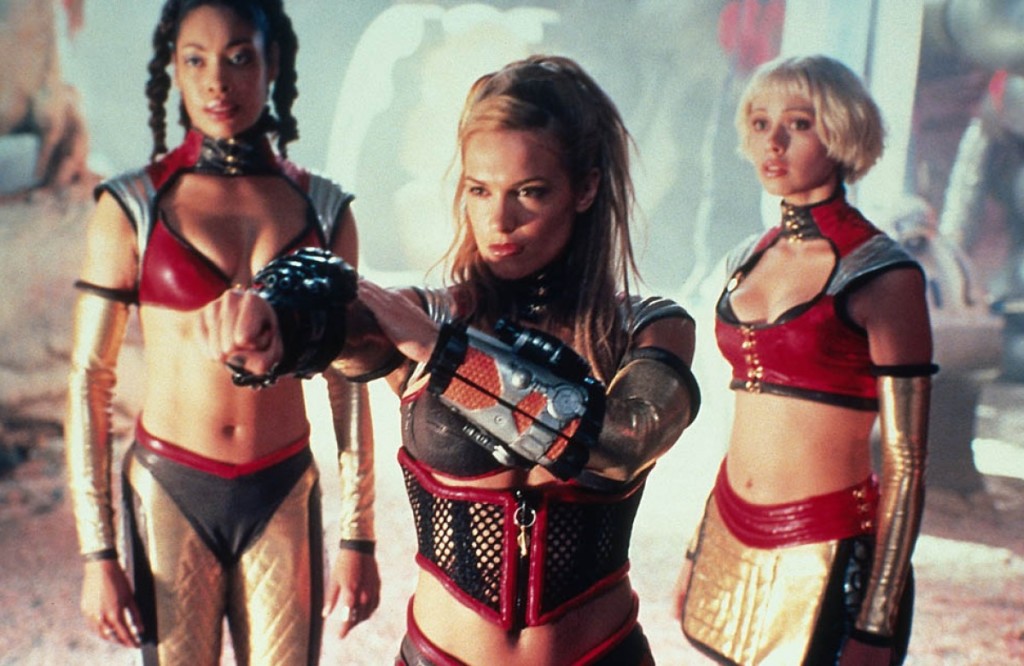 ★★★
★★★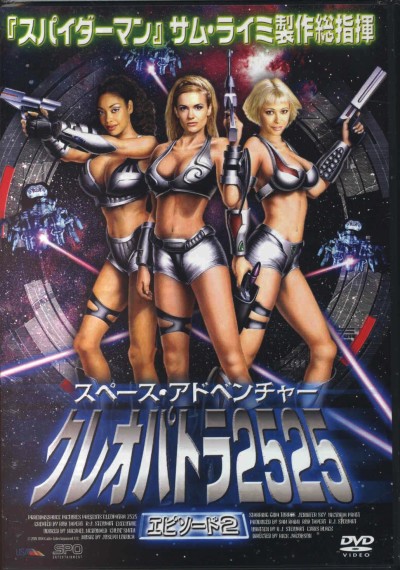 All three, however, were clearly selected as much for their visual appeal, and the 25th century is not short of beautiful people – it’s also quite warm, going by the ah, flimsy clothing worn by the trio. Cleo and her former profession fit right in. But taking any of this seriously would largely be doing the show a disservice, because it’s clear it doesn’t take itself seriously. There isn’t really time for that kind of thing, with each episode barely 20 minutes, excluding opening (theme song sung by Torres, a funked-up and lyrically altered version of Zager and Evans’ one-hit wonder, In the Year 2525) and closing credits. There isn’t much time for anything, in fact: both characterization and plotting remain about as scanty as the outfits. Hel is thoughtful but can be distant; Sarge likes shooting things first and asking questions later; Cleo, to be honest, is mostly irritating, coming over as both whiny and rather vacuous.
All three, however, were clearly selected as much for their visual appeal, and the 25th century is not short of beautiful people – it’s also quite warm, going by the ah, flimsy clothing worn by the trio. Cleo and her former profession fit right in. But taking any of this seriously would largely be doing the show a disservice, because it’s clear it doesn’t take itself seriously. There isn’t really time for that kind of thing, with each episode barely 20 minutes, excluding opening (theme song sung by Torres, a funked-up and lyrically altered version of Zager and Evans’ one-hit wonder, In the Year 2525) and closing credits. There isn’t much time for anything, in fact: both characterization and plotting remain about as scanty as the outfits. Hel is thoughtful but can be distant; Sarge likes shooting things first and asking questions later; Cleo, to be honest, is mostly irritating, coming over as both whiny and rather vacuous.








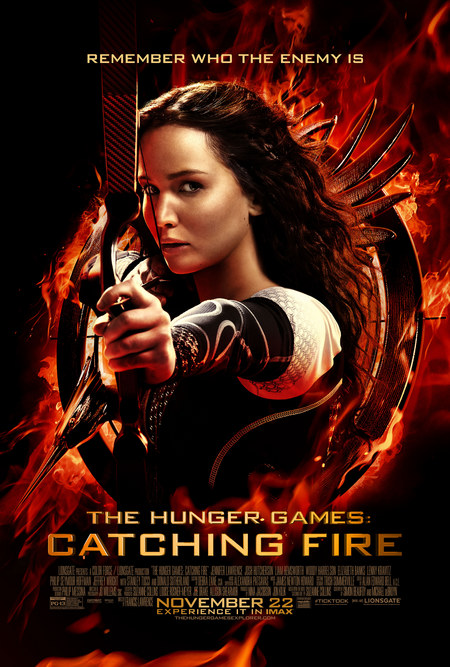
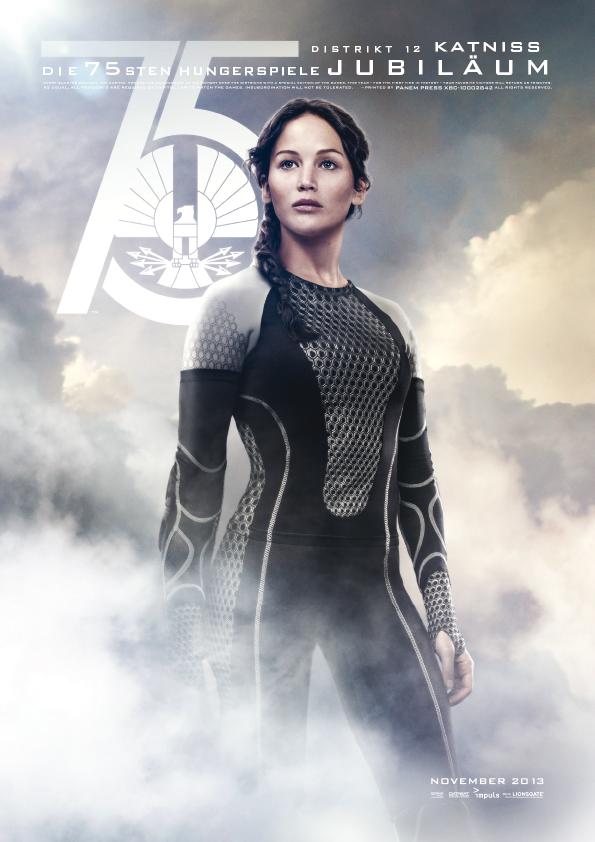












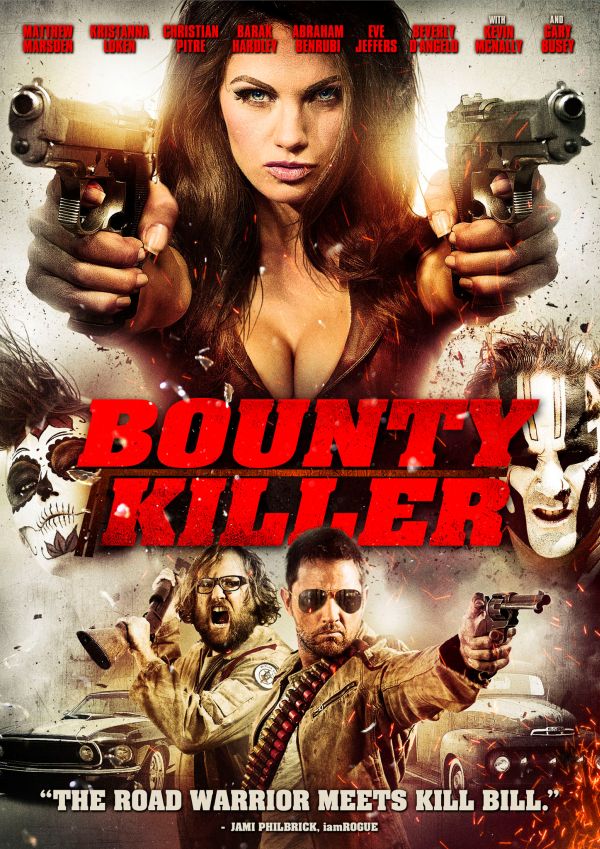
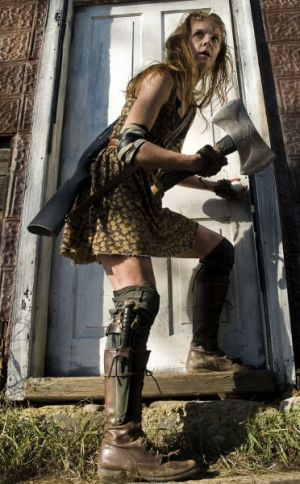 There are times when not saying too much can work for a film; Night of the Living Dead is the classic example, and it works, because you don’t
There are times when not saying too much can work for a film; Night of the Living Dead is the classic example, and it works, because you don’t  Ok, it has become the biggest-grossing action heroine film
Ok, it has become the biggest-grossing action heroine film 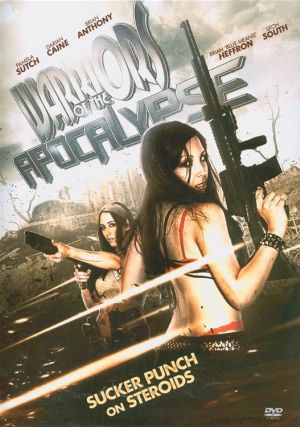 And winner of ‘Least Accurate Movie Tag-line of 2011’ goes to this one, by a country mile. “Sucker Punch on steroids”? Well, let me tell you something. I know Sucker Punch. And Warriors, you’re no Sucker Punch. The drugs reference is fitting, though I’m thinking less steroids, and more likely an overdose of Vicodin. Everything about this, from martial-arts fights staged at the speed of a reluctant glacier, through lighting of scenes that’s so poor as often to be non-existent and obvious digital gunfire [as seen in an extended scrap-yard gun-battle, without any glass being shattered at all], to a painful, sludgecore metal soundtrack presumably made by some mate of the producers, combine into a deeply uninteresting viewing experience.
And winner of ‘Least Accurate Movie Tag-line of 2011’ goes to this one, by a country mile. “Sucker Punch on steroids”? Well, let me tell you something. I know Sucker Punch. And Warriors, you’re no Sucker Punch. The drugs reference is fitting, though I’m thinking less steroids, and more likely an overdose of Vicodin. Everything about this, from martial-arts fights staged at the speed of a reluctant glacier, through lighting of scenes that’s so poor as often to be non-existent and obvious digital gunfire [as seen in an extended scrap-yard gun-battle, without any glass being shattered at all], to a painful, sludgecore metal soundtrack presumably made by some mate of the producers, combine into a deeply uninteresting viewing experience.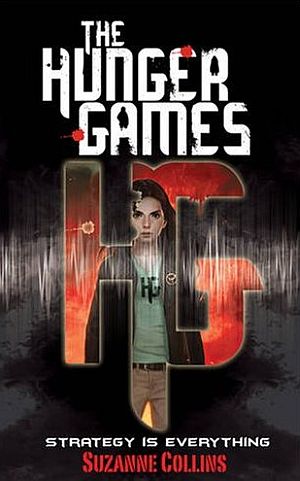 I don’t “do” literature much here: I used to read a ferocious amount, but time and opportunity have waned since I stop commuting by train to work. However, I got a Kindle for my birthday, and that spurred me to finish the first novel I’ve read in a long time. While I enjoyed Hunger, and am keen to see the movie version, I was not blown away by this as much I hoped. It’s certainly a provocative premise. In a dystopian future, the former US has been divided up into districts. To discourage rebellion, each year every district sends two teenagers, selected at random, to the capital. They are placed in a large, multi-terrain arena for a nationally-televised tournament to the death: last one alive wins glory and a life of ease. When her younger sister is selected in their District 12, Katniss Everdeen volunteers to replace her: she has been using her hunting skills to support her family, so feels she has a much better chance of survival. But it’s still one against twenty-three…
I don’t “do” literature much here: I used to read a ferocious amount, but time and opportunity have waned since I stop commuting by train to work. However, I got a Kindle for my birthday, and that spurred me to finish the first novel I’ve read in a long time. While I enjoyed Hunger, and am keen to see the movie version, I was not blown away by this as much I hoped. It’s certainly a provocative premise. In a dystopian future, the former US has been divided up into districts. To discourage rebellion, each year every district sends two teenagers, selected at random, to the capital. They are placed in a large, multi-terrain arena for a nationally-televised tournament to the death: last one alive wins glory and a life of ease. When her younger sister is selected in their District 12, Katniss Everdeen volunteers to replace her: she has been using her hunting skills to support her family, so feels she has a much better chance of survival. But it’s still one against twenty-three…